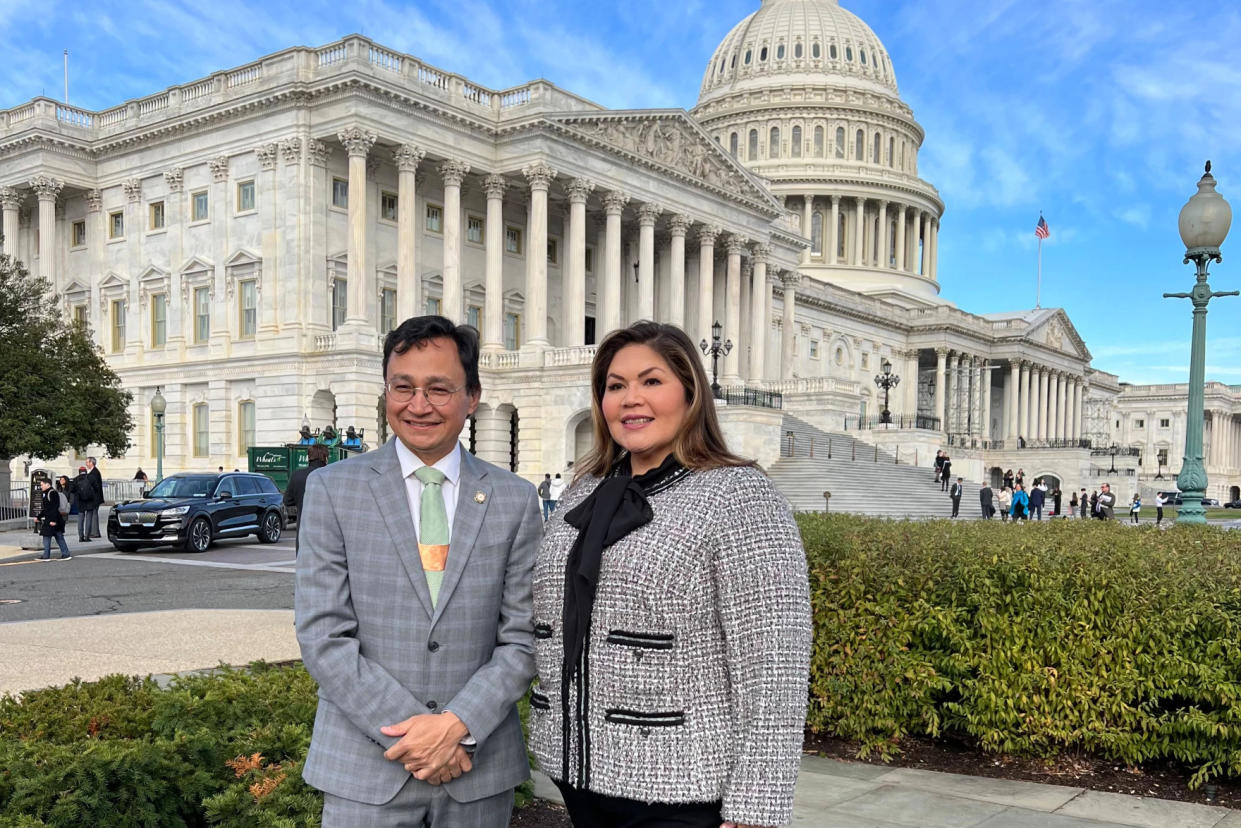Cherokee Nation’s Delegate to Congress is 187 Years Overdue

Opinion. After a 187-year wait, the Cherokee Nation may be getting closer to having a delegate to the U.S. House of Representatives.
Cherokee Nation Principal Chief Chuck Hoskin, Jr. testified before the House Committee on Rules during a historic hearing earlier this month, asking for the fulfillment of a promise stipulated to the Cherokee Nation in the 1835 Treaty of New Echota.
While testifying, Hoskin gave the congressional committee members a lesson in history on the treaty that set up removal of thousands of Cherokee citizens west of the Mississippi River. The Cherokee ended up in northeastern Oklahoma, where they are headquartered today.
The Treaty was ratified by the U.S. Senate in 1836 by one vote and provided a two-year window for the Cherokee to remove themselves from the southeast portion of the United States. During this time, the U.S. Army began building stockades for what would be known as the deadly Trail of Tears.
“This was the agreement that directly led to the deaths of thousands of Cherokees on the Trail of Tears,” Hoskin said. “In this treaty, the Cherokee Nation conveyed the entirety of our lands east of the Mississippi — about 7 million acres — to the United States. In exchange, the government of the United States made certain promises.”
Hoskin told the Committee Article VII of the Treaty of New Echota provides for a delegate in the House of Representatives. Article VII of the Treaty reads:
“The Cherokee nation [sic] having already made great progress in civilization and deeming it important that every proper and laudable inducement should be offered to their people to improve their condition as well as to guard and secure in the most effectual manner the rights guarantied [sic] to them in this treaty, and with a view to illustrate the liberal and enlarged policy of the Government of the United States towards the Indians in their removal beyond the territorial limits of the States, it is stipulated that they shall be entitled to a delegate in the House of Representatives of the United States whenever Congress shall make provision for the same.”
Hoskin also told the Committee: “I’m a tribal leader. I know my history and how the United States has broken a promise or two. In fact, they’ve broken every treaty it has had with tribes.”
The Rules Committee Vice Chairman Rep. Tom Cole (R-OK), who is a tribal citizen of the Chickasaw Nation, stated the hearing itself was historic.
“As a member of the Chickasaw Nation and co-chair of the Congressional Native American Caucus, I have always voiced my support for the federal government to honor its treaty obligations. For far too long in our nation’s history, the federal government accumulated a sorry record of making promises to tribes and then breaking those promises as soon as it was expedient to do so. Only in recent years has that record improved,” Cole said.
Cole, who has been in the House of Representatives since 2003, took note that the Treaty of New Echota was ratified by the Senate. He chided he really didn’t like that the Senate could tell the House what to do, regardless offered his support of the delegate getting seated in Congress.
If seated, the Cherokee delegate to Congress would be a non-voting position in the House of Representatives, such as those who already represent U.S. territories of Puerto Rico, the Virgin Islands, and Guam.
The Cherokee Nation already has selected Kim Teehee, who was nominated by Hoskin and approved by the 17-member Cherokee Nation Tribal Council. Teehee currently oversees the Cherokee Nation’s government relations for the tribe and its business enterprises. She was a staff member for the late Rep. Dale Kildee (D-MI) known for advocating the treaty and trust obligation as a U.S. constitutional right. She then moved on to work for President Obama as the first White House Senior Policy Advisor for Native Affairs. It was during an era when the White House Council on Native American Affairs was established along with the annual White House Tribal Leader Conference.
Having a Cherokee Nation delegate to Congress would strengthen representation of the great Cherokee Nation. We know representation matters. Not only would Teehee lend voice to the Cherokee Nation, but with her vast experience, she would lend voice to Indian Country.
The House of Representatives needs to act to make good on the long overdue Cherokee Nation delegate to Congress. It should act before the end of the 118th Congress. During the hearing, Rep. Jaime Raskin (D-MD) said the Cherokee has been very patient. “We should not be patient. We should act on this before the end of this Congress,” Raskin said.
Thayék gde nwéndëmen - We are all related.
About the Author: "Levi Rickert (Prairie Band Potawatomi Nation) is the founder, publisher and editor of Native News Online. Rickert was awarded Best Column 2021 Native Media Award for the print\/online category by the Native American Journalists Association. He serves on the advisory board of the Multicultural Media Correspondents Association. He can be reached at levi@nativenewsonline.net."
Contact: levi@nativenewsonline.net

